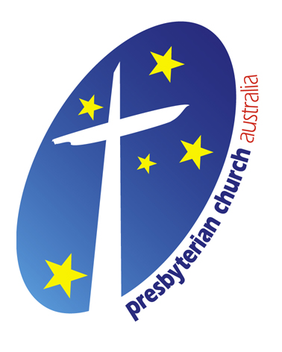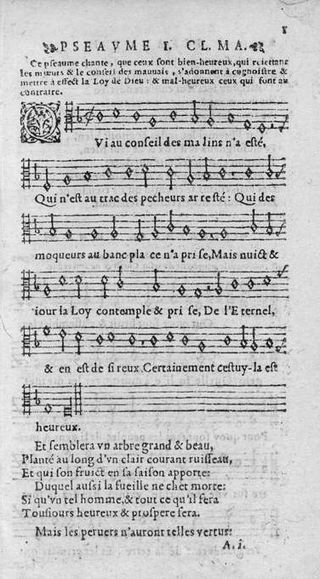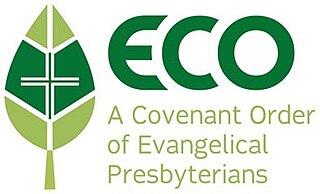Related Research Articles

Presbyterianism is a Reformed (Calvinist) Protestant tradition named for its form of church government by representative assemblies of elders. Though other Reformed churches are structurally similar, the word Presbyterian is applied to churches that trace their roots to the Church of Scotland or to English Dissenter groups that formed during the English Civil War.

The Presbyterian Church in America (PCA) is the second-largest Presbyterian church body, behind the Presbyterian Church (USA), and the largest conservative Calvinist denomination in the United States. The PCA is Reformed in theology and presbyterian in government.
The Confessing Movement is a largely lay-led theologically conservative Christian movement that opposes the influence of theological liberalism and theological progressivism currently within several mainline Protestant denominations and seeks to return those denominations to its view of orthodox doctrine or to form new denominations and disfellowship (excommunicate) them if the situation becomes untenable. Those who eventually deem dealing with theological liberalism and theological progressivism within their churches and denominations as not being tenable anymore would later join or start Confessional Churches and/or Evangelical Churches that continue with the traditions of their respective denominations and maintaining orthodox doctrine while being ecclesiastically separate from the Mainline Protestant denominations. Youth aligned with the Confessing Movement have viewed their project as being an 'Operation Reconquista'.

The Evangelical Presbyterian Church (EPC) is an American church body holding to presbyterian governance and Reformed theology. It is a moderate Calvinist denomination. It is most distinctive for its approach to the way it balances certain liberties across congregations on "non-essential" doctrines, such as egalitarianism /complementarianism in marriage or the ordination of women, alongside an affirmation of core "essential" doctrinal standards.

The Presbyterian Church of Eastern Australia (PCEA) is a small Presbyterian denomination which was formed in Sydney on 10 October 1846 by three ministers and a ruling elder. As of December 2024 it consists of 11 pastoral charges with a total of 14 regular preaching places, 6 serving ministers, 2 ministers without charge, 3 retired ministers and a community of about 500.

The Presbyterian Church of Australia (PCA), founded in 1901, is the largest Presbyterian denomination in Australia. The PCA is the largest conservative, evangelical and complementarian Christian denomination in Australia. The Presbyterian Church of Australia is Reformed in theology and Presbyterian in government.
The Presbyterian Reformed Church (PRC) is a Presbyterian denomination in Australia. The denomination was formed in 1967, as a result of growing theological liberalism within the Presbyterian Church of Australia, prior to the formation of the Uniting Church in Australia in 1977.

Exclusive psalmody is the practice of singing only the biblical Psalms in congregational singing as worship. Today it is practised by several Protestant, especially Reformed denominations. Hymns besides the Psalms have been composed by Christians since the earliest days of the church, but psalms were preferred by the early church and used almost exclusively until the end of the fourth century. During the Protestant Reformation, Martin Luther and many other reformers, including those associated with the Reformed tradition, used hymns as well as psalms, but John Calvin preferred the Psalms and they were the only music allowed for worship in Geneva. This became the norm for the next 200 years of Reformed worship. Hymnody became acceptable again for the Reformed in the middle of the nineteenth century, though several denominations, notably the Reformed Presbyterians, continue the practice of exclusive psalmody.

The Free Presbyterian Church of North America (FPCNA) is a Presbyterian denomination in the United States and Canada with mission works in Liberia, Jamaica, Dominican Republic, and Kenya. Originally consisting of North American congregations under the auspices of the fundamentalist Free Presbyterian Church of Ulster, the North American group became a separate denomination in May 2005.
The Southern Presbyterian Church is a small denomination with a community of about 130 persons located exclusively in Tasmania, Australia. It formed in 1986 when two ministers and a number of members left the Evangelical Presbyterian Church because of a difference of belief over doctrinal issues.
The Free Presbyterian Churchof Australia is a denomination which currently consists of four congregations in fellowship with the Free Presbyterian Church of Ulster. There are congregations in Port Lincoln, Perth, Lock and Kingston, Tasmania.
The Evangelical Protestant Church (GCEPC) or The Lutheran Evangelical Protestant Church (LEPC) is a mainline Protestant denomination under the General Conference of Evangelical Protestant Churches headquartered in Cayce-West Columbia, South Carolina, United States.
The Evangelical Presbyterian Church is a Calvinist, Christian evangelical denomination that is found only in Northern Ireland, where it is the smallest of the Presbyterian churches. It was formed on 15 October 1927 by Rev. James Hunter (1863–1942), former minister of Knock Presbyterian Church (Belfast), and James (W.J.) Grier, a former student at the Assembly's College. They were joined by others who seceded from the Irish Presbyterian Church.

The United Church of Christ in the Philippines is a mainline Protestant denomination in the Philippines. Established in its present form in Malate, Manila, it began as a uniting church after the merger of the Evangelical Church of the Philippines, the Philippine Methodist Church, the Disciples of Christ, the United Evangelical Church and several independent congregations.
Australian Free Church is a Presbyterian denomination in Australia.

ECO: A Covenant Order of Evangelical Presbyterians is an evangelical Presbyterian denomination in the United States. As a Presbyterian church, ECO adheres to Reformed theology and Presbyterian polity. It was established in 2012 by former congregations and members of the Presbyterian Church (USA), abbreviated PC(USA). Denominational disputes over theology—particularly ordination of practicing homosexuals as pastors and gay marriage—and bureaucracy led to the founding of ECO. In 2018, ECO has over 383 congregations, 103,425 covenant partners and over 500 pastors. ECO churches are egalitarian in beliefs and ordain women as pastors and elders.
The Presbyterian Church of the Philippines (PCP), officially The General Assembly of the Presbyterian Church of the Philippines, is a growing evangelical, Bible-based Reformed church in the Philippines. It was officially founded by in 1986 and the General Assembly was organized in September 1996.
References
- 1 2 Robert Humphreys and Rowland Ward, Religious Bodies in Australia, 3rd ed., p. 87. also Rowland S Ward, The Bush Still Burns: The Presbyterian and Reformed Faith in Australia 1788–1988 (Melbourne 1989) 393
- ↑ 'A History Of The Evangelical Presbyterian Church Of Australia' by T D, A & A J Carins and C Coleborn (History Committee of the Evangelical Presbyterian Church of Australia)
- ↑ Chris Connors, The Biblical Offer of the Gospel,, p.8. Universalism and the Reformed Churches.
- ↑ "Modern Moderate Calvinism". Archived from the original on 19 February 2011. Retrieved 24 September 2010.
- ↑ The Presbyterian Banner, June 2019, page 12